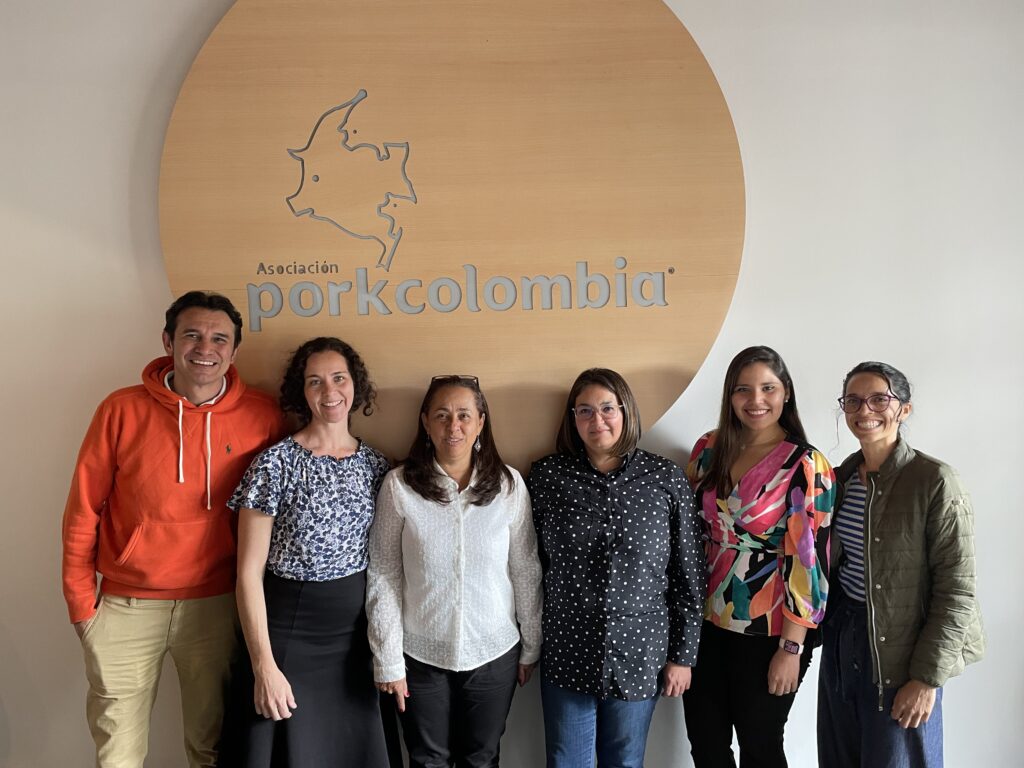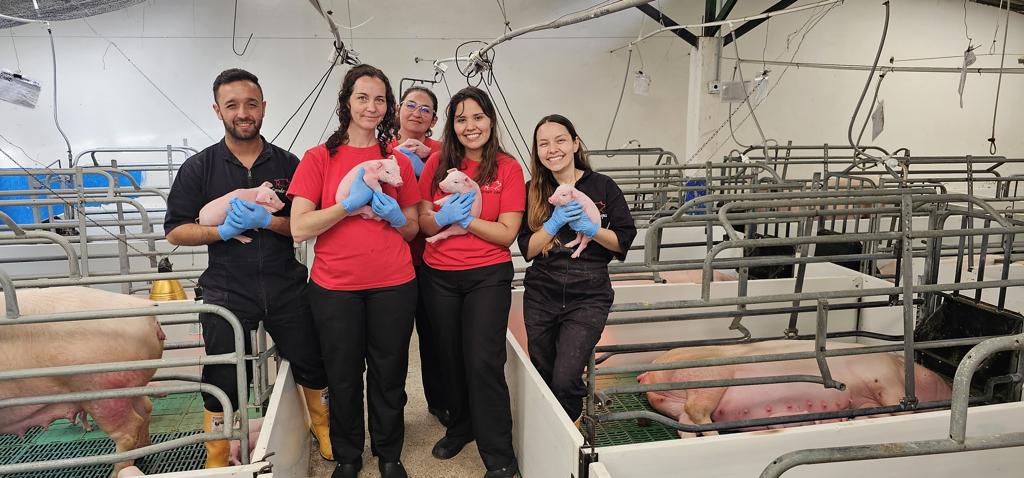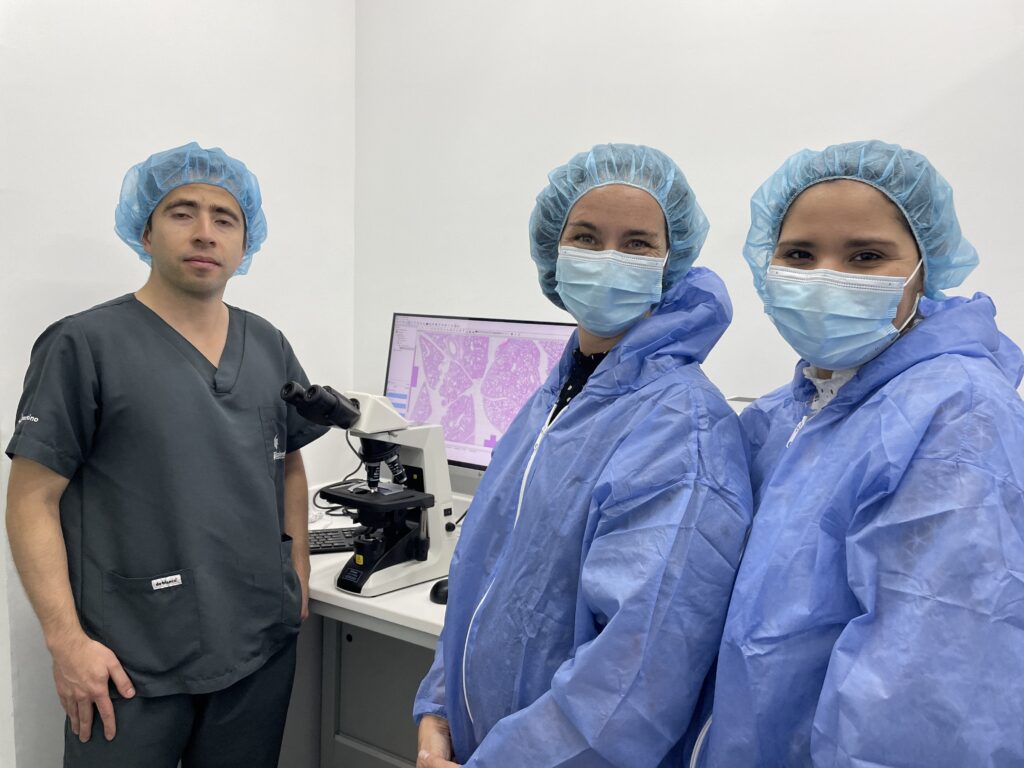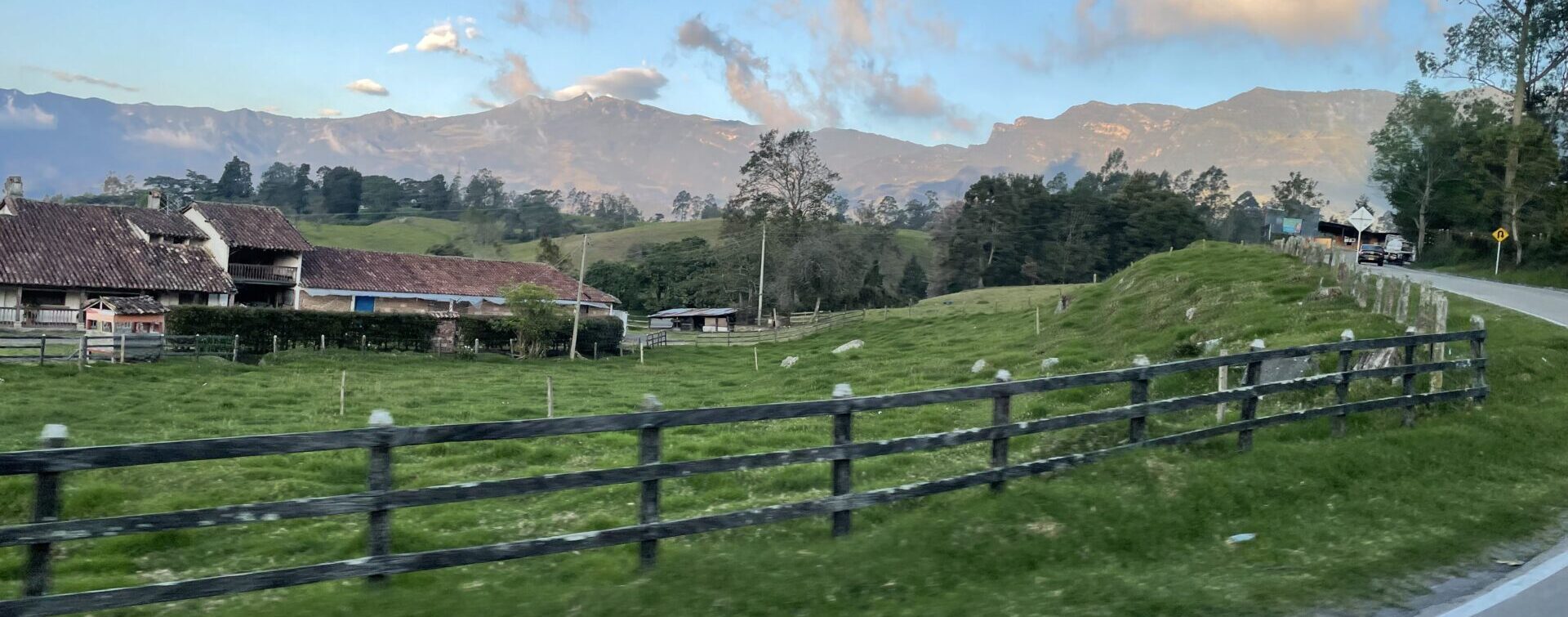In early December, Dr Kristina Osbjer and Dr Mabel De Leo from the ICARS Science team travelled to Colombia to visit one of the pig farms implementing antimicrobial resistance (AMR) mitigating interventions as part of the ICARS-supported project in the country. During the visit, they also discussed the methods, results, and scale-up plans of the ICARS-supported projects with stakeholders from Porkcolombia, the National University of Colombia and the Ministry of Agriculture.

The ICARS-supported project, Reducing diarrhea and antimicrobial use through improved provision of colostrum and use of vaccines in weaning pigs in Colombia, commenced in February 2022 and aims to reduce the excessive use of antimicrobials in pig farms. By optimizing the intake of raw milk (colostrum) and implementing vaccination scheme, the project expects to decrease the incidence of diarrhea and reduce antimicrobial use in farms associated with Porkcolombia. The primary beneficiaries of this project are the pig farmers, the overall pig sector, the Colombian Ministry of Agriculture, and the official veterinary service- ICA.
Initial Learnings
The ICARS team visited one of the farms together with colleagues from Porkcolombia for a deeper understanding of how the multifaceted colostrum protocol was implemented and deliberated on the effectiveness, enablers, and barriers of the intervention. One of the farm veterinarians reported that prior to the implementation of the project’s intervention, he feared the farm would experience higher disease incidence and slower growth of the piglets. However, the new protocol proved to be equally or more efficient in reducing piglet diarrhea in the respective farm. Piglets in the intervention group were found to be more viable, healthier and with a better growth rate. The multifaceted colostrum protocol was, however, work intense and the farm would need to recruit and train more staff to maintain it. To better understand the requirements and incentives for a large-scale uptake of the colostrum and vaccine protocol, the ICARS project will investigate the behavioral and economic aspects through focus group discussions and cost-benefit analyses. Additionally, regular meetings will be held with the Ministry of Agriculture to develop a dissemination and scale-up plan of the protocol and how project evidence could be translated into better policies and legislation.

Gathering Insights from Additional Projects
The visit provided an opportunity to meet and discuss with other project teams in Colombia. One of the other projects discussed were the recently finalised joint ICARS-Global AMR Innovation Fund (GAMRIF) project, which assessed access and uptake of diagnostics for better pig farming in Colombia. Another project on the agenda was the ongoing ICARS-JPIAMR project, FARM-CARE, that focuses on the control of stress and AMR transmission between pigs and from pigs to farm workers.
The mission was fruitful and important to better understand local experiences from implementing interventions in projects and for contextualizing the scale-up plan in Colombia for maximum impact.


